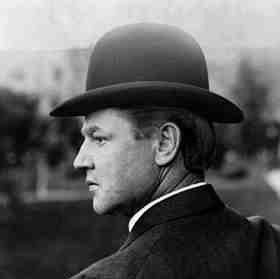- 12 Apr 2006 11:29
#850816
The Nepalese king Gyanendra is losing controal over his country, by the looks of it.
http://news.bbc.co.uk/1/hi/world/south_asia/4901226.stm
http://www.alertnet.org/thenews/newsdesk/DEL301986.htm
http://news.bbc.co.uk/1/hi/world/south_asia/4901226.stm
When the king sized power in February 2005, he asked for three years to restore peace and democracy in the country.
Despite displeasure at his action, many people waited to see some positive moves from a man whom they viewed as both shrewd and sharp.
However, 14 months on there is a growing feeling that the king is becoming the biggest obstacle to restoring peace and democracy in Nepal.
On Monday, a senior cabinet minister confided to the BBC on condition of anonymity that almost half the cabinet were pressing the king for reconciliation with political parties.
That demand was reflected in a statement, also issued on Monday, by the party of one senior minister, Keshar Bahadur Bista.
The idea of a republican Nepal has become stronger by the day since the royal coup.
There is also a growing feeling among many monarchists that King Gyanendra has done more harm to the institution of monarchy in one year than the Maoist rebels could have done in 10.
The failure to deliver, growing lack of trust, deepening political crisis, widening public resentment and increasing international isolation suggest that King Gyanendra will ultimately have no choice but to seek reconciliation - until or unless he decides to go down the path of ruthless dictators and risk his throne.
http://www.alertnet.org/thenews/newsdesk/DEL301986.htm
The campaign, backed by Maoist insurgents, had been due to end on Sunday but was extended indefinitely as stringent security measures prevented big rallies against the king.
Professional groups have protested against the king in the past but they have rarely joined hands to demonstrate together. Their plans to unite showed that opposition to the king was growing, analysts said.
Protests were also staged in towns and districts outside Kathmandu and residents reached by phone said thousands of people had taken to the streets against the king, ignoring curfews in several places.
Doctors said hospitals were flooded with patients, some needing treatment for bullet wounds.
On Tuesday, troops shot at activists, wounding many, after they burned tyres, chanted slogans and clashed with police in Gongabu, a Kathmandu suburb.
It was the first time troops had opened fire in the capital during the latest anti-king campaign and some of the wounded were feared dead, Nepali newspaper Kantipur reported.
The report could not be confirmed immediately. Three people have died so far since the latest round of protests began on Thursday, all of them outside of the capital.
Reuters reporters who visited one Kathmandu hospital late on Tuesday where activists wounded in Gongabu had been brought, saw 39 people being treated in an overflowing emergency hall.
Political parties say hundreds of protesters have been injured in the crackdown on the latest demonstrations so far and more than 1,500 detained.
A government notice published in state-run Rising Nepal newspaper on Wednesday said the authorities had banned strikes in 15 sectors including banking, insurance, telecommunications, hospitals, hotels, electricity and water supply.
Violators could be jailed for up to six months, it said.
Gyanendra justified taking power in February 2005 saying politicians had failed to crush a raging Maoist revolt. But the turmoil in the troubled nation has only worsened since.
The Maoist conflict has killed more than 13,000 people so far and wrecked the aid-and-tourism dependent economy of one of the 10 poorest countries in the world.
International pressure has mounted on the king to end his crackdown and restore democracy.
The European Union, one of Nepal's largest donors, urged the king "to take an urgent initiative to resolve the present problems by restoring democracy and by reaching out to all political forces to initiate a dialogue for peace".
"Businessmen favor free enterprise in general but are opposed to it when it comes to themselves." - Milton Friedman
















 - By JohnRawls
- By JohnRawls